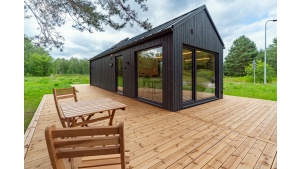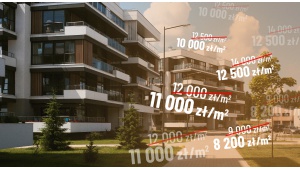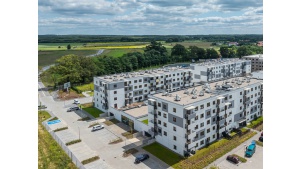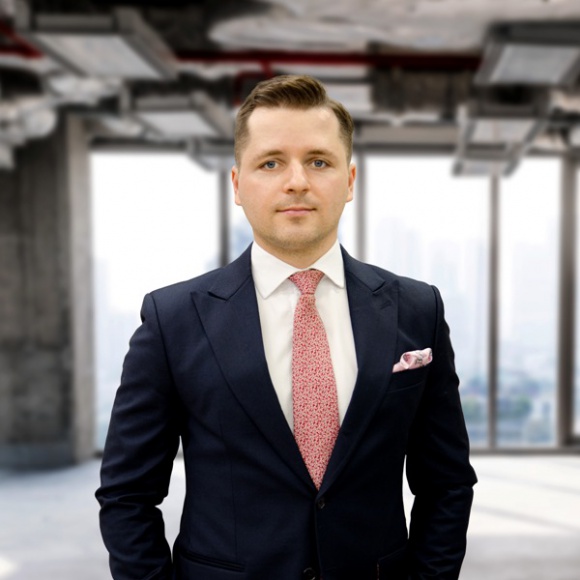Retail parks – current opportunities
Prestige PR
Włodarzewska 81C lok 81
02-393 Warszawa
i.wisniewska|prestigepr.pl| |i.wisniewska|prestigepr.pl
508 927 958
www.prestigepr.pl
Growing bigger
Over the last few years, retail parks in Poland were mostly developed in smaller formats, around 5,000 square meters, either adding to the existing retail landscape or introducing modern retail amenities to smaller towns as their first such facilities. Now, there's a noticeable shift towards larger developments, with 32 bigger retail parks (GLA > 5,000 sq. m.) either being built or expanded, including 6 that exceed 20,000 sq. m. The biggest retail park on the construction stage is Sun Park Mysiadło, which will offer 55,000 sq. m. These larger schemes make up more than half of the new construction space in this category.
Retail parks developed in bigger formats have become alternatives to traditional regional shopping centres by offering tenants lower operating costs and making it feasible for them to grow in markets that were previously out of reach. Their effectiveness and appeal to consumers have prompted operators traditionally focused on conventional malls to venture into retail parks. This trend includes a variety of tenants, particularly those in the economy fashion sector, gastronomy and service providers like gyms or play areas, and even childcare facilities.
Slowdown, but retail parks still sought-after
Despite a general slowdown in real estate investments, retail parks continue to remain one of top choices for investors in Poland. They are perceived as a relatively stable and secure investment, offering affordability with individual transactions typically ranging from 5 to 15 million euros.
In 2023, retail parks and convenience facilities made up 56% of the sector's total investment volume, also representing about half of all transactions. Already in 2024, a few deals with this type of assets have been completed, with Avison Young's team advising on the sale of 2 of them. Looking ahead, several more transactions involving substantial retail parks are anticipated in the near future.
Due to our country's size, dynamic economic growth, and the numerous locations where retail offer can be still developed, we stand out among competitive countries where retail parks are valued significantly higher. This advantage continually draws new investors in search of appealing opportunities. Last year, the market welcomed first acquisition of the French investor FREY – the purchase of Matarnia Retail Park in Gdansk marked one of the top three investment deals of 2023. Additionally, an Austrian family office made its entrance into the Polish market by acquiring 2 convenience retail parks in Silesia, with Avison Young advising on the purchase.
The retail park sector remains ripe for further development, given its still unsaturated market and the availability of suitable land for investment. Currently, approximately 50 retail parks, including small convenience schemes, are under construction. The growth dynamics of the investment market is relatively slow, primarily because the majority of investors are long-term holders. Therefore, the investment volume mainly depends on developers and the delivery of new assets. In 2023, 40% of retail parks involved in transactions were new investments (less than 2 years on the market).
Lack of portfolios, more individual buyers
The current state of the Polish retail park market is characterized by a lack of consolidation, as seen in the relatively few portfolio transactions. In 2023, only 3 small retail park portfolios were sold in the retail sector, with Avison Young investment advisory in 2 of them.
The Polish local market is notably different from its Western countries, primarily due to the scarcity of portfolios of retail parks or grocery stores. Significant local investors acquiring retail parks typically do so with the intention of holding onto these assets long-term to generate rental income, rather than reselling them. This approach results in a relatively quiet portfolios market.
Who is buying?
The interest in Polish retail parks remains high, with over 20 investors actively seeking opportunities in this segment. Most active seem to be investors from Central and Eastern Europe, the Baltics, and Poland itself. These are often individual investors and small family offices. Individual investors are also successfully acquiring a considerable number of single grocery stores, offering often higher purchase price than investment funds.
The primary challenge lies now in finding properties that meet the criteria of both affordability and quality. The most sought-after retail parks are those that are newly built, situated in major cities, and feature a grocery store tenant secured by a long-term lease. Despite these specific preferences, the market does not lack either available properties or potential buyers.
Author: Artur Czuba, Associate Director, Investment

Łotewski producent wysokiej jakości domów prefabrykowanych wchodzi na polski rynek

Deweloperzy ukrywają ceny mieszkań. Z troski o klientów czy swoje portfele?

Więcej przestrzeni, mniej hałasu – dlaczego Polacy coraz częściej wybierają przedmieścia?
Więcej ważnych informacji
 Jedynka Newserii
Jedynka Newserii

 Jedynka Newserii
Jedynka Newserii

Polityka

D. Joński: Nie wiemy, co zrobi Rosja za dwa–trzy lata. Według duńskiego wywiadu może zaatakować kraje nadbałtyckie i musimy być na to gotowi
Zdecydowana większość krajów unijnych wskazuje na potrzebę wzmocnienia zdolności obronnych Europy w obliczu coraz bardziej złożonego geopolitycznego tła. Wywiady zachodnich państw wskazują, że Rosja może rozpocząć konfrontację z NATO jeszcze przed 2030 rokiem. Biała księga w sprawie obronności europejskiej „Gotowość 2030” zakłada m.in. ochronę granic lądowych, powietrznych i morskich UE, a sztandarowym projektem ma być Tarcza Wschód. – W budzeniu Europy duże zasługi ma polska prezydencja – ocenia europoseł Dariusz Joński.
Transport
Duże magazyny energii przyspieszą rozwój transportu niskoemisyjnego w Europie. Przyszłością może być wodór służący jako paliwo i nośnik energii

Zmiany w europejskim transporcie przyspieszają. Trendem jest elektromobilność, zwłaszcza w ramach logistyki „ostatniej mili”. Jednocześnie jednak udział samochodów w pełni elektrycznych w polskich firmach spadł z 18 do 12 proc., co wpisuje się w szerszy europejski trend spowolnienia elektromobilności. Główne bariery to ograniczona liczba publicznych stacji ładowania, wysoka cena pojazdów i brak dostępu do odpowiedniej infrastruktury. – Potrzebne są odpowiednio duże magazyny taniej energii. Przyszłością przede wszystkim jest wodór – ocenia Andrzej Gemra z Renault Group.
Infrastruktura
W Polsce w obiektach zabytkowych wciąż brakuje nowoczesnych rozwiązań przeciwpożarowych. Potrzebna jest większa elastyczność w stosowaniu przepisów

Pogodzenie interesów konserwatorów, projektantów, inwestorów, rzeczoznawców i służby ochrony pożarowej stanowi jedno z największych wyzwań w zakresie ochrony przeciwpożarowej obiektów konserwatorskich. Pożary zabytków takich jak m.in. katedra Notre-Dame w Paryżu przyczyniają się do wprowadzania nowatorskich rozwiązań technicznych w zakresie ochrony przeciwpożarowej. W Polsce obowiązuje już konieczność instalacji systemów detekcji. Inwestorzy często jednak rezygnują z realizacji projektów dotyczących obiektów zabytkowych z uwagi na zmieniające się i coraz bardziej restrykcyjne przepisy czy też względy ekonomiczne.
Partner serwisu
Szkolenia

Akademia Newserii
Akademia Newserii to projekt, w ramach którego najlepsi polscy dziennikarze biznesowi, giełdowi oraz lifestylowi, a także szkoleniowcy z wieloletnim doświadczeniem dzielą się swoją wiedzą nt. pracy z mediami.




![Nestlé w Polsce podsumowuje wpływ na krajową gospodarkę. Firma wygenerowała 0,6 proc. polskiego PKB [DEPESZA]](https://www.newseria.pl/files/1097841585/fabryka-nesquik_1,w_85,r_png,_small.png)




.gif)

 |
| |
| |
|